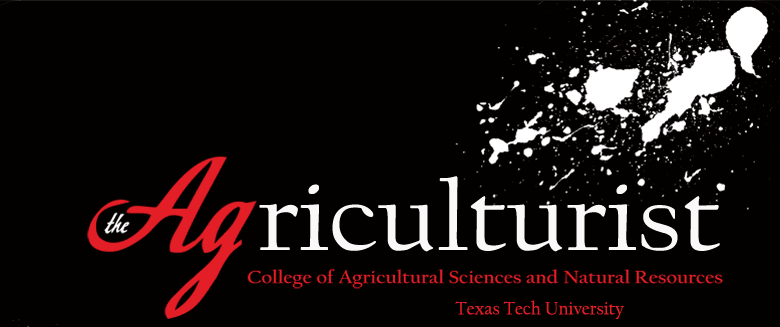
Table of Contents
Features
Agriculture: We Can Sustain It
Socializing Agriculture
Painter of Quiet Places
An Apple a Day
Sustaining the Four Sixes
Hitting Pay Dirt
The New Face of Agriculture
The Winds of Change
Avatars Animate Agriculture
Professors in Training
Going Green
Saving Lives One Plan at a Time
Protecting Our Food
Quality Cells, Consumer Buys
Tech's New Mate
Micro ZAP
Food Saftey in Mexico
Expanding Opportunities
No Bits About It
The Family Farm Fire Man
Around the World with CASNR
Live From Texas Tech
Looking Forward
Getting Schooled
A Cotton Senstaion
Living and Learning
More Than a Trophy
Online Exclusives
Alumni Lance Barnett: Unpeeled
Agricultural Education and CommunicationDepartment Shines in 2010
CSI: Classroom Soil Investigation
Facing Nature
GINuine
Healing Hooves
Parking and Partying in Style
Raider Red Meats
Standing TALL
Tech Takes Flight
West Texas Cotton Goes Global
Professors In Training
By Paige Baker
The challenge of being a student and learning the role of a faculty member is the heavy load a doctoral student carries. However, for three doctoral students in agricultural education at Texas Tech University, these tasks are minute compared to lives they hope to one day mold as professors.
One doctoral student, Kelsey Hall, has found the challenge of balancing all the tasks of a doctoral student can be rewarding. Hall is a student pursuing a doctorate in agricultural education with an emphasis in agricultural communications.
Hall recalls that as a teaching assistant, she recognized the knack she had to teach. She found she could use the same skills she had from her undergraduate degree and professional experience to educate students interested in agricultural communications.
“I thought that was a great experience because you could see that ‘aha’ moment of students taking their work and really using it,” Hall said.
Two other doctoral students found inspiration to further their education, but for different reasons.
While Gaea Wimmer taught high school agriculture in a rural Kansas town, the opportunity to pursue a doctoral degree in agricultural education presented itself. Wimmer’s sister, Courtney Meyers, assistant professor in agricultural communications at Texas Tech, helped convince Wimmer to come to Texas Tech to receive her doctorate.
“I really loved my high school students,” Wimmer said, “and I would like to help train those teachers to go into the classroom and be successful in order to help their future students.”
Similar to Wimmer, Boot Chumbley would like to make a difference in high school students lives through the education of high school teachers. However, Chumbley would also like to pursue more career opportunities. He stated that the possibility of working in high school administration led him to pursue a doctorate in agricultural education.
“The unique deal about what I’m doing is I’m also going to pursue a superintendent certification, and that creates more options,” Chumbley explained. “My main goal is to be a college professor and train agricultural education teachers, but if I want to go back into high school administration or teaching, I could do that as well.”
Doctoral students choose to pursue an advanced degree for various reasons that can range from a passion to teach, to the pursuit of future opportunities and the possibility of influence on the careers and lives of students. The common theme lies in each doctoral student’s desire to help others. In the end, it is the quality of future faculty members that will influence each student’s success at Texas Tech – today and well into the future.